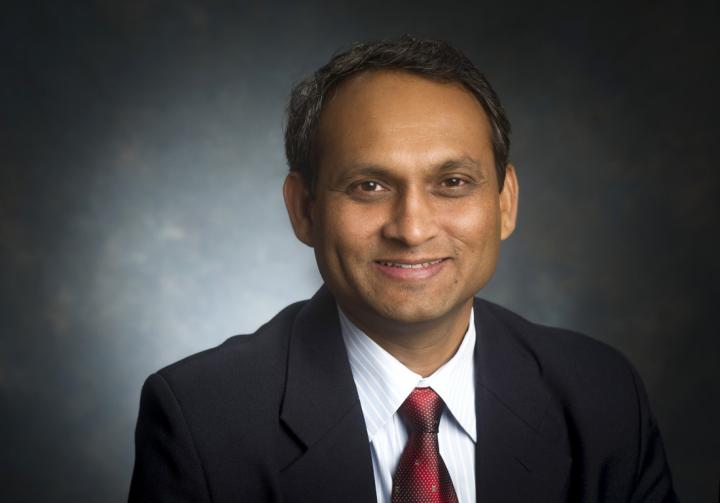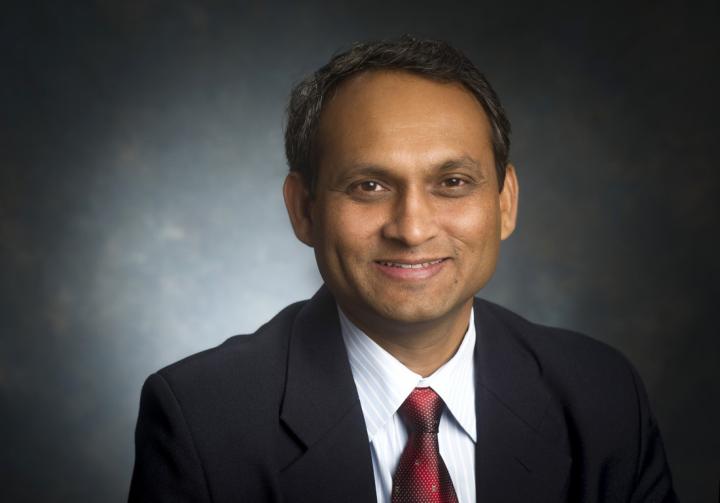
Credit: UAB
BIRMINGHAM, Ala. – Non-steroidal anti-inflammatory drugs, or NSAIDs, are commonly used as inflammation blockers worldwide. However, recent clinical data show these painkillers can have serious side effects that create some risk of heart attacks, strokes, and kidney or heart failure.
Attention has focused on how NSAIDs may cause dysfunction of the immune system, including disrupting the normal immune response involved after heart injury. This normal response has two stages — the acute phase, where leukocytes from the spleen migrate to the heart's left ventricle to clear out dead heart-muscle cells and form scar tissue, followed by a resolving phase to dampen the acute inflammation.
University of Alabama at Birmingham researchers, led by Ganesh Halade, Ph.D., an assistant professor in the UAB Department of Medicine's Division of Cardiovascular Disease, have now studied such dysfunction associated with the NSAID carprofen. In a study published in the Journal of Leukocyte Biology, they found that sub-acute pretreatment with carprofen before experimental heart attack in mice impaired resolution of acute inflammation following cardiac injury.
They focused on three aspects of the inflammation resolution axis — cardiac function, leukocyte profiling and inflammation-resolution markers.
They found that, after heart attack, the carprofen-pretreated mice had a greatly intensified amount of the CD47 cell-surface marker in the left ventricle and the spleen. The CD47 marker is a "don't eat me" signal, and the increased CD47 was found to be on neutrophil cells, which are involved in acute inflammation after heart injury. Thus, the amplified CD47 on neutrophils resisted clearance of the neutrophils and developed a non-resolving inflammation.
The UAB researchers also found that carprofen treatment before heart attacks pre-activated neutrophils in the spleen to make them more inflammatory, and it also activated pro-inflammatory macrophages. This helped trigger the swarming of activated neutrophils from the spleen to the left ventricle after the heart attack. At the same time, reparative leukocytes in the left ventricle were compromised.
Carprofen pre-treatment failed to limit expression of the enzymes cyclooxygenase-1 and cyclooxygenase-2, further dysregulating the production of resolving lipid mediators, which created a deficit in the resolution of inflammation in the injured heart.
Furthermore, the carprofen pretreatment led to an imbalance of inflammatory and reparative cytokines after cardiac injury, and this expanded the inflammatory phase in the injured heart.
###
Co-authors with Halade of the study, "Subacute treatment of carprofen facilitates splenocardiac resolution deficit in cardiac injury," are Vasundhara Kain, Griffin M. Wright and Jeevan Kumar Jaddapalli, Division of Cardiovascular Disease, UAB Department of Medicine.
Support came from National Institutes of Health grants AT006704 and HL132989, a University of Alabama at Birmingham Pittman Scholar Award, and American Heart Association postdoctoral fellowship POST31000008.
Media Contact
Jeff Hansen
[email protected]
205-209-2355
http://www.uab.edu
Related Journal Article
http://dx.doi.org/10.1002/JLB.3A0618-223R





